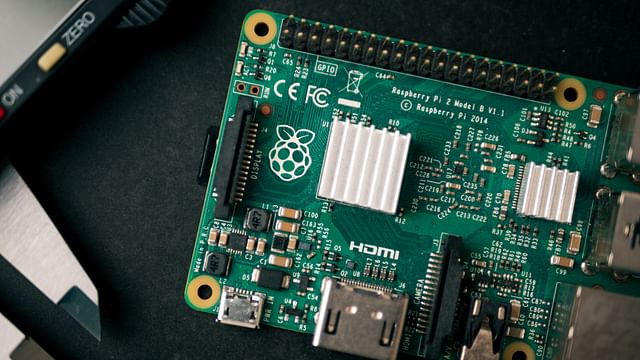
Raspberry Pi 4: The Ultimate Guide to Zigbee and Z-Wave Home Automation
If you are looking to transform your home into a smart and efficient haven, you might have come across Raspberry Pi 4 and Zigbee/Z-Wave home automation. Raspberry Pi 4 is a powerful single-board computer that can help you run your home automation system. It comes with impressive features, including a 64-bit quad-core ARM Cortex-A72 CPU, gigabit Ethernet, and dual-band 2.4GHz and 5GHz wireless connectivity. Additionally, Zigbee and Z-Wave are two popular wireless communication protocols that are used in home automation devices.
In this article, we will explore how you can use Raspberry Pi 4 and Zigbee/Z-Wave home automation to build a smart home that is efficient and secure.
What is Raspberry Pi 4?
Raspberry Pi 4 is a powerful single-board computer that was released in 2019. It is the fourth generation of the Raspberry Pi family and comes with impressive features that make it ideal for home automation. Raspberry Pi 4 is built on a 64-bit quad-core ARM Cortex-A72 CPU, which makes it faster and more powerful than its predecessors. It also comes with up to 8GB of RAM, gigabit Ethernet, and dual-band 2.4GHz and 5GHz wireless connectivity.
What is Zigbee?
Zigbee is a wireless communication protocol that is used in home automation devices. It is based on the IEEE 802.15.4 standard and uses the 2.4GHz frequency band. Zigbee is designed to be a low-power, low-bandwidth, and low-cost alternative to Wi-Fi and Bluetooth. Zigbee devices are typically used in home automation systems, such as smart light bulbs, smart thermostats, and smart locks.
What is Z-Wave?
Z-Wave is a wireless communication protocol that is similar to Zigbee. However, it operates on a different frequency band (900MHz) and offers better range and reliability compared to Zigbee. Z-Wave devices are typically used in home automation systems, such as smart plugs, smart switches, and smart sensors.
Setting Up Raspberry Pi 4 for Home Automation
To set up Raspberry Pi 4 for home automation, you will need the following:
- Raspberry Pi 4
- MicroSD card (at least 32GB)
- Power supply (at least 5V and 3A)
- Ethernet cable (optional)
- Wi-Fi dongle (optional)
- Zigbee or Z-Wave USB stick
- Home automation software (such as Home Assistant)
Once you have gathered all the required materials, you can proceed with the following steps:
Download the latest version of Raspberry Pi OS from the official website and flash it onto the MicroSD card using Raspberry Pi Imager.
Insert the MicroSD card into your Raspberry Pi 4 and connect it to the power supply.
Connect your Raspberry Pi 4 to the internet using an Ethernet cable or Wi-Fi dongle.
Install the required software packages and configure the system according to your needs.
Plug in the Zigbee or Z-Wave USB stick and configure it using the home automation software.
Benefits of Using Raspberry Pi 4 and Zigbee/Z-Wave Home Automation
Using Raspberry Pi 4 and Zigbee/Z-Wave home automation offers numerous benefits, including:
Control: You can control your home automation devices from anywhere, using your smartphone or tablet.
Efficiency: You can optimize your energy consumption by automating your lights, heating, and cooling systems.
Security: You can enhance the security of your home by installing smart locks, door sensors, and surveillance cameras.
Comfort: You can create a personalized environment that suits your preferences and lifestyle.
Conclusion
Raspberry Pi 4 and Zigbee/Z-wave home automation offer a powerful combination that can help you build a smart and efficient home. With Raspberry Pi 4, you have a powerful single-board computer that can run your home automation system, while Zigbee and Z-Wave provide the wireless communication protocols that connect your devices. By using this combination, you can transform your home into a smart, efficient, and secure haven.
Posted on: Oct 12, 2022 Last updated at: May 4, 2023